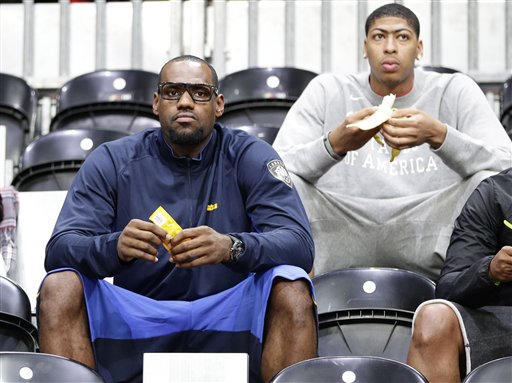« In the NO Podcast Episode 185: Offseason Moving
Game On: Pelicans vs Spurs »
What does Lebron’s return to Cleveland mean for small markets?

For the past five years a growing sentiment around the professional basketball world has been the neglect of small market basketball franchises. This has been pushed mostly through the superstar movements around the league. When Lebron decided to leave Cleveland many fretted that it was only a matter of time that others followed. To some extent it was true.
Deron Williams left Utah, Carmelo wanted the bright lights of New York, Dwight Howard was sick of Orlando and Chris Paul wanted to raise his profile on a bigger stage. Years before, Kevin Garnett left Minnesota and Ray Allen from Seattle. Shaquille O’Neal forced his way to Los Angeles and don’t forget Pau Gasol too.
Yet here we are now with the best player in the world – the most marketable – heading back to Cleveland. Many thought it would not be possible what with an owner who completely vilified the superstar for leaving just four years ago. I guess that’s fair considering how much money James had made him.
Though the move is not easily straightforward to understand when applying to the issue of parity in the NBA. Cleveland was James’ home and its unique storyline means little when using it as a case study for more small markets to gather superstar players.
The alternative to the James move is to analyse the San Antonio Spurs. Many talking heads around the league love referencing their culture and citing it as the model for small market organisations.
But in the 10 years that the Spurs have been dominate, why has there been no replication on their way to success? It’s likely because each situation is unique on its own – even if common themes perpetuate across successful organisations a like.
The relevancy to the Pelicans is whether Lebron’s move has any bearing towards their situation and Anthony Davis.
The formation of superteams has been a well-documented media narrative. Yet there are few examples to cite it as a trend. It’s the irrational accusations of player collusion that spark untoward hostility in the direction of those who play the game of basketball so well.
Anthony Davis still has much to achieve before he becomes a free-agent. But should he get to that position and leave is there not a large amount of blame to be thrown at the organisation that had him for 5-8 years?
The Pelicans cannot harbor any self-pity because they’re a small market team. They must plan like they are one of thirty, trying to build towards a championship. If the players, coaches and staff don’t treat it as such then it’s only fair that superstars like Davis look at ways to make themselves happy.
Fans too must embrace the players and Pelican supporters need to continue to turn out for games. Bandwagoners will surely help if success increases, but the support starts today.
Davis’ hometown is in Chicago and the “threat” of big markets will only remain ingrained in New Orleans’ fans psyche so long as the organisation they support remains incompetent of putting a winner together.
The good news is they appear to be doing everything to improve and that is comforting. They now have several players all capable pros with an aura of upside.
Lebron’s move back to Cleveland is exciting for small-market fans. It gives optimism where pessimism was before even though each situation is so unique to each individual player. Some want the lime light others want championships, but all do what makes them feel happy.
The underlying takeout from Lebron’s move is that players will do what they want when given the chance. It’s up to small markets to stop feeling sorry for themselves and do everything they can to make their players feel happy, wanted and have the chance to fulfil their goals and aspirations.





10 Comments